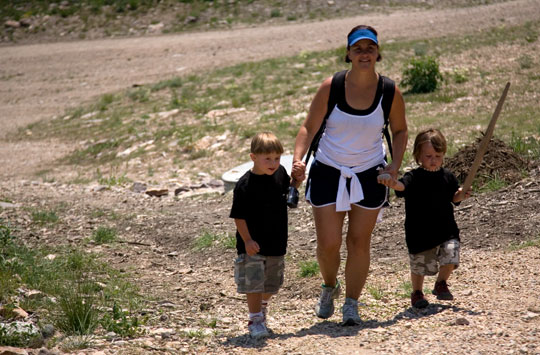Behavior and Processing
by Ellen Doman
 Every week I see children who are not co-operating with processing activities. This may be happening with your child. Sorting out what is going on with that situation is a job that you, your support person and your evaluator will need to address. Let’s take a minute, however, and look at some typical scenarios that may help you understand your own situation a bit better.
Every week I see children who are not co-operating with processing activities. This may be happening with your child. Sorting out what is going on with that situation is a job that you, your support person and your evaluator will need to address. Let’s take a minute, however, and look at some typical scenarios that may help you understand your own situation a bit better.
First of all, stop expecting the child to be completely consistent with their sequencing level. Have you tried Simply Smarter? You are not consistent with your sequencing. How can you expect your child to be? It is normal for there to be times when your child is too tired, excited, distracted to do sequencing. It is normal for your child to do very well sometimes and rather poorly other times. It is not helpful to get angry with your child about this. So take it easy. Keep in mind that we are looking at the overall function of the child. If that is improving, then we are moving in the right direction.
If your child is not moving forward when you do sequencing activities and does not seem to be improving functionally, we will look at other factors. How are those ears doing? Do we know? How congested has your child been? Are we sure that there are not hearing issues? Positive? Health is a big factor in improving processing. Allergies, chronic congestion, and unidentified hearing issues can block progress in any child.
Is your child processing at a two or three? These are not the most compliant levels of processing. Your child may be refusing to do all sorts of things. It may be that the more you demonstrate that you want the child to do an activity, the more the child is determined not to do it. If this is the case, you will need the support of your support person in order to find some fun and less obvious ways to do the processing activities.
If your child is processing above a three and still does not cooperate with processing activities, then we look at the big picture. How much do you require your child to do for himself/herself? Does your child have some responsibilities or do you do everything for him or her? If there is a long pause here while you try to think of Something that your child does in the way of responsibilities, that may be part of the problem. As children improve in processing, it is really essential that we make them use it. If the child is processing at a five but is permitted to live the life of a child at a three, we aren’t going to get good effort on processing activities.
Allowing our children to progress and grow up when they have been delayed behind their peer group is a very hard thing to do. My favorite question, “If not now, then when?” is one that I challenge you to put to yourself. If your child is still not doing any chores or doing minimal self-care, or you are brushing your child’s teeth or dressing your child, or never letting your child doing anything on their own, if you are not having your child do it now, then when will you? If your child’s processing is high enough to do things for themselves or to participate in house responsibilities, you must let them. The push to grow up comes from you. Society will not push many of the kids to grow up. Society will tolerate the kids being permanent kids forever. As a parent, try not to be part of this problem.
I know that it is hard. It’s hard to find the energy to “do battle” with a child on any regular basis. We all know that if we are consistent, our children will improve. Doing it is not so easy. The determination that causes a parent to look beyond the immediate services for help for their child is the determination that I need each parent to use in getting their child to use their processing and grow up. Behavior is both an outcome of processing and a barrier to processing improvement.
Look at your child’s behavior. Look at your child’s processing level. If it’s a match, that’s good. Move on to get that processing higher. If it’s not a match and the processing is higher than the behavior indicates, it’s time to push the child to greater levels of responsibility. That’s a good thing, by the way, to push your child to great independence.
Justin can take the GED and get a drivers license. Rebecca can go in a store and buy something without you. Sara can do household chores by herself. Joseph can put the laundry away. Sean can put his own shoes on by himself. Liz can cook many meals on her own. And isn’t wonderful that they did? If their parents hadn’t trusted them to or pushed them to, they never would have.
Raising children is a process. Things are meant to change. As a parent, we must be the catalyst for change. Your child ALWAYS does something or doesn’t do something temporarily. Let there be no always except to say that your child is always growing and progressing. Assume change. Expect change. Work toward change. It is the destiny of a child to change. Help it happen.



